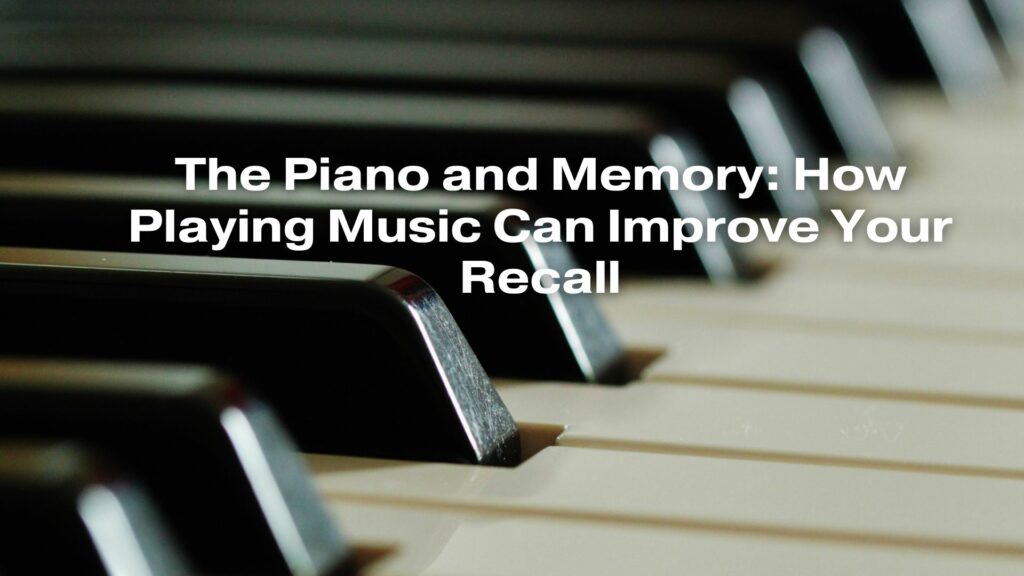The piano is not just an instrument for creating beautiful music; it is also a powerful tool for enhancing memory. Learning to play the piano engages various cognitive processes that can improve memory and recall. In this article, we’ll explore the connections between piano playing and memory enhancement.
1. Cognitive Stimulation:
- Learning to play the piano is a mentally stimulating activity. It engages memory, problem-solving, and pattern recognition, all of which are essential for memory enhancement.
2. Muscle Memory:
- Piano playing involves the development of muscle memory. As you practice and repeat musical passages, your fingers memorize the movements and sequences, improving overall coordination and dexterity.
3. Spatial Memory:
- The piano keyboard provides a unique spatial memory challenge. Memorizing the arrangement of keys, scales, and chords improves spatial awareness and can benefit other memory-related tasks.
4. Auditory Memory:
- Playing the piano sharpens auditory memory, as you must remember how specific musical passages and melodies sound.
5. Visual Memory:
- Reading sheet music and recognizing musical notations require strong visual memory. This skill can extend to remembering visual cues and information in other areas of life.
6. Repetition and Consolidation:
- Consistent practice is essential in piano playing. The process of repetition helps consolidate memory, making it easier to recall music and other information.
7. Multisensory Learning:
- Playing the piano is a multisensory experience. You use both hands, read sheet music, and listen to the sound you produce. Multisensory learning can enhance memory retention.
8. Pattern Recognition:
- Music is filled with patterns, from scales and arpeggios to chord progressions. Recognizing and memorizing these patterns in piano playing can improve your ability to identify patterns in other contexts.
9. Emotional Connection:
- Music often carries emotional weight and personal meaning. Emotional connections can enhance memory retention, making it easier to remember pieces you feel a strong connection to.
10. Focus and Attention: – Playing the piano requires intense focus and attention to detail. These attributes can improve your overall ability to concentrate, a key factor in memory enhancement.
11. Lifelong Learning: – Learning to play the piano fosters a love of lifelong learning. The process of acquiring new skills and knowledge contributes to cognitive health and memory maintenance as you age.
12. Stress Reduction: – Playing the piano can be a form of stress relief. Reduced stress levels are linked to better cognitive function and memory.
13. Interconnected Brain Regions: – Research has shown that learning and playing music can activate and strengthen multiple brain regions, creating a more interconnected and efficient cognitive system.
In conclusion, the piano serves as a remarkable tool for memory enhancement. Through cognitive stimulation, muscle memory, and multisensory learning, piano playing engages various aspects of memory improvement. Whether through the development of spatial, auditory, or visual memory, playing the piano can enhance your overall cognitive abilities, making it a valuable asset in both musical and non-musical aspects of life.


